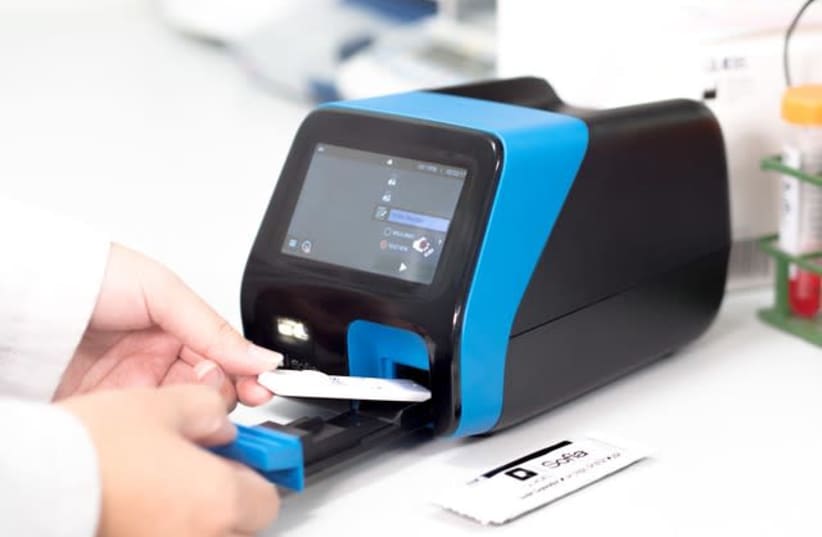MKs, staff and visitors to the Knesset will soon be tested for the coronavirus using mobile technology from Sofia that gives results in about 15 minutes without the need for processing in a laboratory.
Sofia is a groundbreaking technology from the American company Quidel that allows 40 tests to be performed per hour. An immediate negative result means it is safe to continue to work as long as other protective measures, such as wearing masks, social distancing and washing hands, are used. A Sofia test costs about a third of a standard PCR test.
A Sofia device is set to be put into use at the Knesset, Health Ministry director-general Chezy Levy told Knesset director-general Samy Bakalash. The Sofia tests will be performed under the supervision of the Knesset doctor in accordance with Health Ministry guidelines and safety rules for testing and sampling the virus outside of a laboratory.
“Every positive case must be reported and an epidemiological investigation conducted in accordance with the guidelines,” Levy said in a statement.
Many Knesset members have tested positive for the coronavirus, including Likud MK David Bitan, who recently was admitted to the intensive-care unit of Sheba Medical Center in Tel Hashomer when his symptoms intensified. Dozens more have been exposed to the virus and have had to work via Zoom until they were cleared to return to the Knesset.
The Sofia mobile device that will be installed in the Knesset is from the existing inventory purchased by the Health Ministry, Quidel said in a press release. They have been approved by the FDA and the Health Ministry’s Central Laboratory for Viruses,
To date, about 160,000 Sofia tests have been performed in hospital emergency rooms, nursing homes, Home Front Command, the Israel Police, the Prisons Service and the health funds, as well as another 56,000 immediate tests in the “green” tourist islands of Eilat and the Dead Sea.
According a recent article published by University of Arizona researchers, while in symptomatic people, this rapid test could detect more than 80% of coronavirus infections found by a slower lab-based PCR test, when the test was used to randomly screen people who did not feel sick, it detected only 32% of the positive cases identified by the PCR test.
“That number might have been lower if the test group had included only people with symptoms,” Quidel president and chief executive Doug Bryant told The New York Times in an interview.
“The Sofia’s instruction manual claims that the product can detect 96.7% of the infections that PCR tests can when used on people in the first five days of their illness,” he said.
Some 13 million Sofia tests are conducted each month worldwide, and its use is predicted to grow to more than 70 million tests per month by the end of 2021, the press release said.
